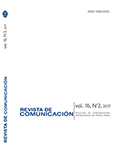
Abstract
This essay will deal with the main characteristics of Ozu’s oeuvre, mainly with the interesting relationship that he established with the cinematographic camera. It will be analyzed the way in which his oeuvre deals with the important transformation that the Japanese society underwent during the second half of the last century. In the second part, the essay will deal with Wenders’ documentary film Tokyo-Ga (1983) and his analysis of social transformations in Japan during the Eighties. Following this framework, the effects of video-electronic images on the socio-technological context analyzed by Wenders will be examined. Further, I will inquire into the way in which simulacra began to populate our reality and seemingly replace the real. To conclude, through some reflections on the media condition highlighted by Wenders in Tokyo-Ga, I will also analyze the passage from the video-electronic condition to our current media condition.
Keywords
Critical Media Studies; Jean Baudrillard; Wim Wenders; Yasujirō Ozus
German A. Duarte es es Doctor en Medios de comunicación y estudios cinematográficos por la Ruhr-Universität Bochum, Alemania. Actualmente es titular de la cátedra de Historia y crítica cinematográfica y de medios audiovisuales en la facultad de Design and Art en la Free University of Bozen-Bolzano, Italia.GDuarte@unibz.it, http://orcid.org/0000-0002-0902-7790
